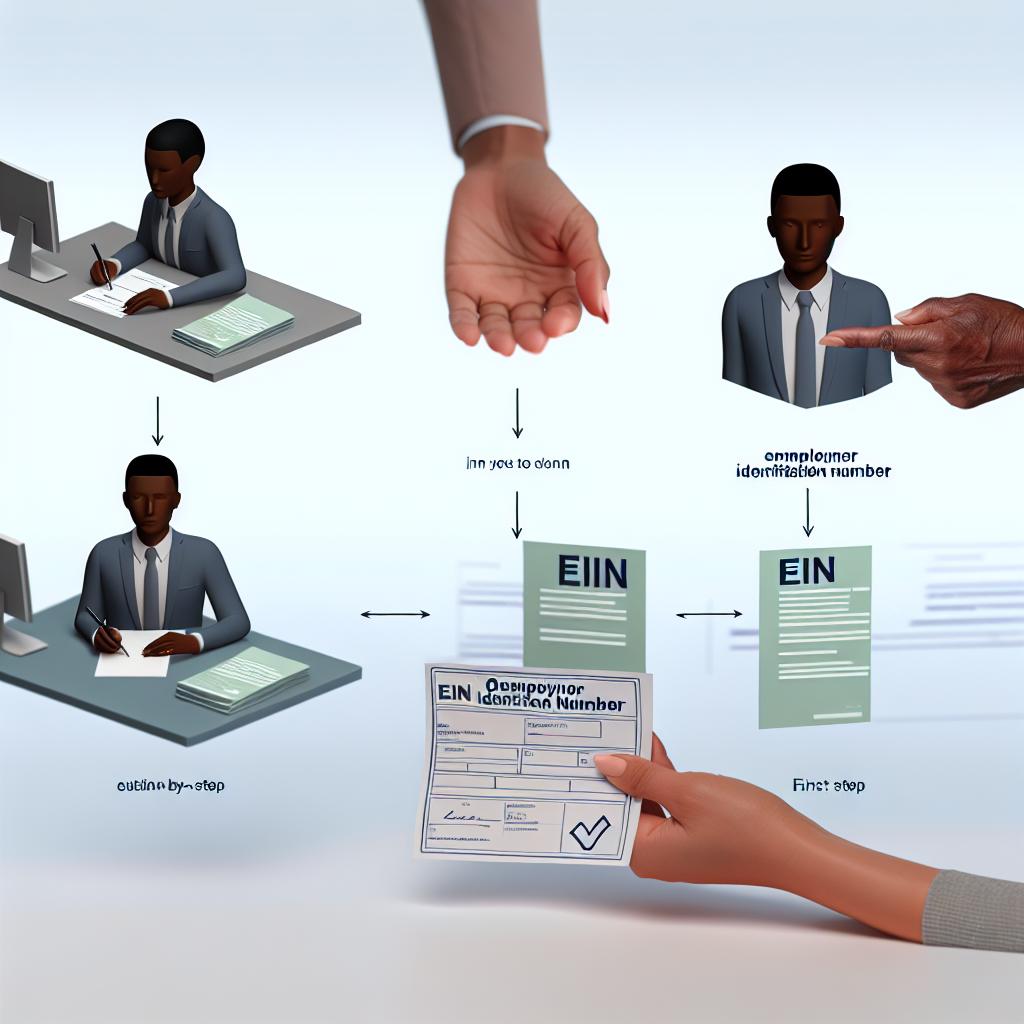
How to Obtain an EIN (Employer Identification Number)
Understanding the Employer Identification Number (EIN)
The Employer Identification Number (EIN), also referred to as the Federal Tax Identification Number, is a distinctive nine-digit number assigned by the Internal Revenue Service (IRS) to business entities operating in the United States. It serves primarily as an identifier used in processes related to taxation and other essential financial activities that pertain to businesses. The EIN is not exclusively reserved for conventional corporate bodies; it extends to cover diverse entities including but not limited to individual proprietors, non-profits, trusts, and estates. This versatility underscores the significance of the EIN as a vital component of regulatory compliance in the business world.
Who Needs an EIN?
In general, an array of different entities needs to secure an EIN to conduct their business responsibilities effectively. Below are some detailed elucidations on the types of entities that necessitate having an Employer Identification Number:
Sole Proprietors with Employees: While sole proprietors might not always require an EIN, those proprietors who envision or have already embraced the prospect of hiring employees must obtain an EIN. This requirement exists because employing staff impacts tax liabilities and the need for organizational adherence to specified employment tax regulations.
Partnerships and Corporations: Partnerships and corporations, irrespective of their size, must possess an EIN. These business structures inherently involve legal and financial responsibilities that demand meticulous identification and accountability, often requiring interactions with multiple governmental bodies.
Non-Profit Organizations: Unlike other business entities, non-profit organizations, including religious bodies and charitable institutions, are mandated to have an EIN. This need arises from their engagement in activities that, while not profit-oriented, nonetheless require tax-related tracking and compliance.
Step-by-Step Process to Obtain an EIN
Acquiring an Employer Identification Number is usually a straightforward task, provided that the applicant selects an appropriate method suited to their urgency and convenience. The IRS facilitates the application process through several avenues, each with distinct timelines and procedural requirements:
Online Application
The online application system offered by the IRS is recognized for its efficacy and speed, permitting most applicants to obtain their EIN instantaneously. Available on the IRS platform during specific operational periods, this method is regarded as the most expedient for those able to access and navigate the online environment with ease. Interested individuals can commence their application journey by visiting the designated IRS EIN application page.
Application by Fax
Applying through fax involves a more traditional approach. Applicants must download IRS Form SS-4, carefully complete it, and then send it via fax to the appropriate number that serves their locale. While this method necessitates waiting for a few business days, typically around four, it serves as a viable option for those preferring an offline submission mode.
Application by Mail
For those who favor postal services, applying by mail remains a steady alternative. This method mandates a filled IRS Form SS-4 to be mailed directly to the IRS’s designated office, as specified in the accompanying form instructions. Prospective applicants should exercise patience, as this process can extend up to four weeks for processing and receipt of the EIN.
Application by Phone
Phone applications for an EIN are reserved explicitly for international applicants lacking a legal residence, main business location, or principal office within the United States. By contacting the IRS directly through a designated phone line, international entities can navigate the process, often enjoying an expedited resolution relative to other remote application methods.
Important Considerations
While the process of obtaining an EIN may seem routine, there are pivotal considerations to ensure proper compliance. First and foremost, it is imperative to verify that the entity indeed qualifies for an EIN under IRS guidelines before initiating an application. Caution should be observed in terms of deciphering entity eligibility and authorization.
Only those individuals vested with explicit authority, typically a business owner or sanctioned corporate officer, are eligible to make the application for an EIN on behalf of their entity.
Further, it is advisable to maintain thorough records of the EIN application process and the eventual assignment of the number itself, as this numeric identifier is integral to fulfilling various tax filing obligations and carrying out financial dealings pertinent to the entity.
In concluding, although obtaining an EIN marks a significant milestone in establishing a compliant business operation, it represents merely one component in the broader tapestry of adhering to federal tax mandates. Business owners and entities must remain vigilant of evolving IRS requirements and adaptations to ensure ongoing compliance in their operations. Regular updates from the IRS and due diligence will aid entities in sustaining their compliant standing and avoiding potential pitfalls in tax-related affairs.


